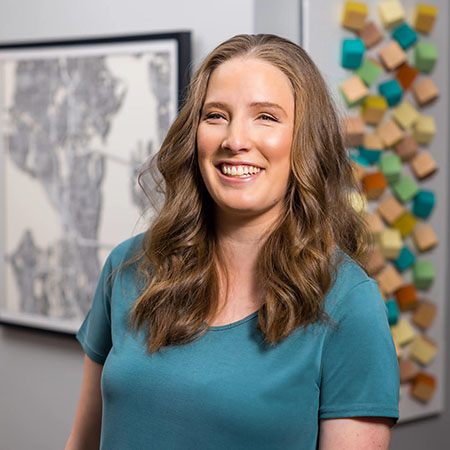Toward Accessible and Disability Representative Gen AI
Cynthia Bennett
Senior Research Scientist, Google Research

Abstract: Generative (gen) AI, including large language models (LLMs) and text-to-image (T2I) models, has exploded in popularity over the past couple of years. It is quickly transforming from experimental interfaces to becoming embedded in tools we use every day. As such, there is opportunity to ensure that the media generated by AI is accessible to and representative of the around 20% of people who have disabilities. In this talk, I will share two recent projects on this topic.
First, I will discuss image description needs of blind and low vision consumers of AI-generated images. Text-to-image AI interfaces where users enter text prompts and receive images as outputs are rapidly changing visual media, yet these products currently do not also generate image descriptions for blind and low vision users. While image description best practices are established in digital accessibility standards, needs for nonvisual access to visual media are evolving, particularly around descriptions of unique and uncanny content, and ensuring users can easily understand how information was generated. I’ll share our study where we evaluated image descriptions of AI images with both AI image creators and blind and low vision consumers, and offer recommendations and new research directions for ensuring new AI-powered experiences are accessible.
The second project concerns disability representation in AI-generated text and images. In separate studies, we asked people with disabilities to evaluate AI-generated short stories about disability, and AI images output from prompts that specified the images should include people with different types of disabilities. I will share the tropes identified by our participants, which often replicated well documented media misrepresentation of people with disabilities. I’ll offer recommendations for more respectful disability representation in AI-generated media, and some complexities of disability representation which warrant additional research.
Bio: Dr. Cynthia (Cindy) Bennett is a senior research scientist in Google’s Responsible AI organization. Her research concerns making technology-mediated experiences, such as those leveraging generative AI, accessible to and representative of people with disabilities while mitigating harmful applications. Prior, she was a researcher at Apple and a postdoc at Carnegie Mellon University after receiving her Ph.D. in Human Centered Design and Engineering from the University of Washington. Her work has been recognized by paper awards from the ACM conferences ASSETS, CHI, and DIS. She is also a disabled woman scholar committed to raising participation of people with disabilities in computing fields.